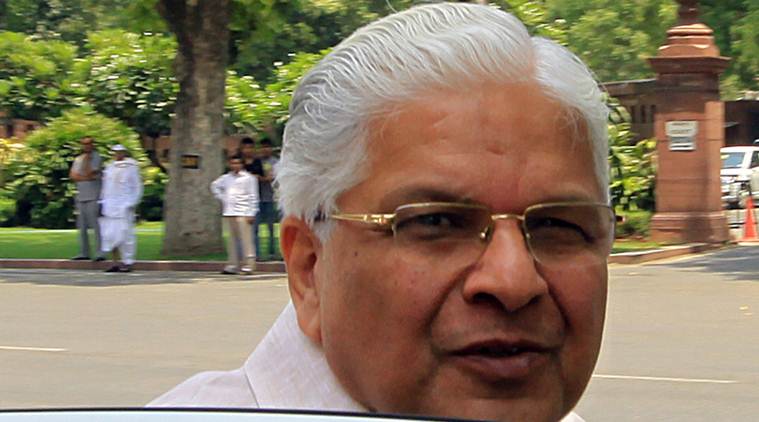|
Updated: August 24, 2017 7:59 pm
 Former Law Minister Ashwani Kumar (Express File Photo By Anil Sharma)
Former Law Minister Ashwani Kumar (Express File Photo By Anil Sharma)
Q. As a former Law Minister, what is your view on the Supreme Court judgment declaring right to privacy as a fundamental right under the Constitution?
A. It is a landmark decision. The Supreme Court has vindicated the constitutional conscience and has validated yet again its role as a guardian of our constitutional rights. The judgment will pave the way for further strengthening the edifice of our dignitarian Constitution. I, as the Minister of State for Planning, had taken the initiative of constituting the Justice A P Shah committee to propose a standalone privacy legislation. It is unfortunate that a country that is proud of its human rights jurisprudence does not have till date as standalone statutory law to protect the privacy rights of citizens.
Q. Do you think in the light of the judgment, the Government should now bring such a law?
A. Such a statute has become an urgent and compelling necessity which could, apart from clearly delineating the privacy rights parameters, also specify the exceptional circumstances under which reasonable restrictions could be imposed. Such exceptional circumstances could include imminent danger to security of the state or individuals. It is also unfortunate that despite a consistent record of stellar pronouncements expanding the human rights of individuals, a needless controversy was raised before the Supreme Court regarding whether the right to privacy is a fundamental right or not. I am happy that such a needless controversy has been resolved.
Q. Why did the UPA government not bring such a law?
A. The Justice A P Shah committee’s recommendations, I understand, had been submitted during UPA-II. We were hoping to have this legislation passed but for some reason it could not be done. It is never too late for this government to proceed ahead in the matter.
Q. Is the judgment a setback to the government?
A. In so far as the government took a contrary stand before the highest court, it certainly is a setback. The government of a liberal and democratic nation, professedly committed to constitutional rights, should never have taken such a stand before the Constitution.
Q. How will this impact the Aadhaar architecture?
A. This judgment need not necessarily impact the Aadhaar architecture. But the government should comprehensively revisit the technological and legal architecture of Aadhaar in order to bring it in line with the spirit and substance of the Supreme Court judgment. The UIDAI has so far maintained that Aadhaar data does not necessarily impact privacy rights. I am not so sure because serious reservations have been expressed by informed citizens in the past. Therefore, the minimum that the government should do is have a transparent comprehensive review of the legal and technological architecture of Aadhaar and DNA profiling and all such legislation and executive decisions that impinge upon the privacy rights of citizens.
Q. What about data which is in the hands of internet giants and e-commerce firms?
A. In my view these pose a very clear and serious challenge to privacy rights of citizens. Many of our citizens who voluntarily part with data have no clue or idea of the people who are going to have access to the data, the purposes for which the data would be used… we have to have a stringent data regulatory regime as is in place in other parts of the world. Even better architecture should be devised by India in the light of the experiences not only in our country but in other parts of the world.
Q. The right to privacy law should include all these aspects?
A. Yes. That is the entire purpose. The idea is to have a standalone comprehensive legislation to give effect to the mandate of Article 21 in a manner that the specific contours of the rights and exceptional circumstances under which reasonable restrictions could be imposed are laid down by an act of Parliament so that nobody at a whim can alter the right to privacy structure.
Q. Do you think in the wake of the judgment, the Supreme Court verdict on Section 377 of the IPC should be revisited?
A. Yes. I think it does. My personal view is that the judgment of the Supreme Court will also will have to be revisited in the light of this judgment and quite clearly one of the very senior judges of the Supreme Court had expressed that if the right to privacy is held to be a fundamental right, it will necessarily have consequences for the Naz judgment under Section 377.
For all the latest India News, download Indian Express App